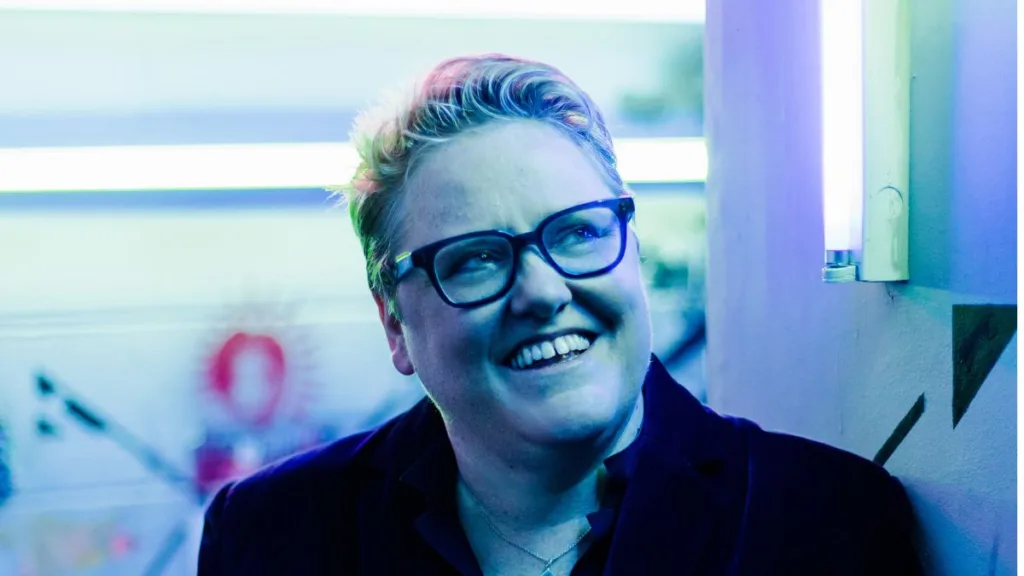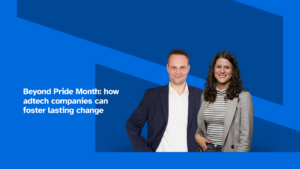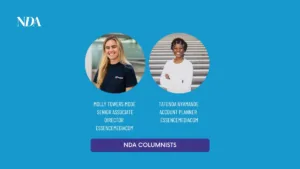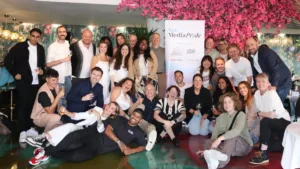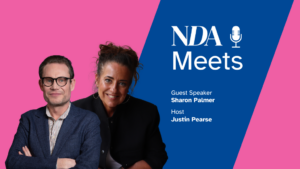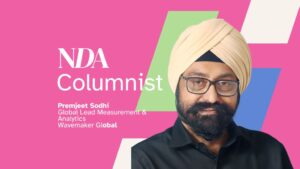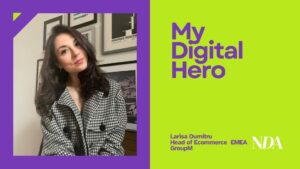With the launch of NDA’s Media Pride, we talk to leaders across the industry to understand the opportunities and challenges within our industry’s LGBTQIA+ community. Next up is Tamara Littleton, CEO, The Social Element.
What is the biggest challenge for members of the LGBTQIA+ community in the digital industry and how is it being overcome?
I think it’s the same issue for LGBTQIA+ people across the board in the UK at the moment – this rapid polarisation of our media around trans people, and rising anti-LGBT violent attacks across the country. In the digital industries, there’s a sense of ‘are we contributing?’ because of the links to the media organisations and the social media platforms that amplify messages of division over unity.
Ultimately social media platforms create echo chambers for radicalisation, while many publications cater to those audiences for clicks – agreement and outrage clicks alike all equally mean revenue to them.
This is starting to create a real issue for brands who have long stood beside LGBTQIA+ communities. Bud Light’s recent controversy has pitted the brand against a rapid Republican base in the US. Though the sales impact was marginal, this is part of a series of events which have created a mood of nervousness. You have Target, forced to remove some of its Pride merchandise due to concerns about the safety of their employees – and, of course, many of us question whether it’s also to placate a big part of its customer base.
Brands need to understand that now is the time to double down on their support for marginalised communities. Of course employee safety comes first, but brands need to find ways to send a signal that the world’s leading brands are going in one direction, and people can get on board or get left behind.
What three things could employer companies do to make the digital industry better for the LGBTQIA+ community?
From an internal point of view, employers need to give people a platform to share concerns, create momentum around allyship and create inclusive environments. This all requires investment and careful thought around how to build supportive cultures.
The other side is leveraging the influence the industry has: putting pressure on social media platforms to better moderate hate speech, for example. Continue to do good work around diverse casting and inclusive strategies for digital campaigns. Representation has improved, and we should continue to do so.
What impact can a more inclusive approach to LGBTQ+ communities in our industry have on society as a whole?
Brands have made huge strides in terms of engaging and championing the LGBTQ community and normalising our existence and rights. But we’re losing ground.
The ‘war on woke’ perpetuated by most mainstream British newspapers and carried out online by radicalised communities has polarised society, and it is clear that socially we are moving backwards, not forwards. Using old homophobic tropes against trans people such as ‘negatively influencing children’ is bringing out those same old impulses not just against trans people – which is awful as it is – but the entire LGBTQIA+ spectrum
Hate speech and violent anti-LGBTQIA+ crime is on the rise. Brands are retreating from their support of the community. But we need them more than ever. Our industry can both empower them to be involved in this space and help to create positive stories that counter the bile out there at the moment. Brands show where the future is going and if we can keep up corporate momentum on pro-LGBTQIA+ issues, then that makes a real, tangible difference.
What support structures and organisations are most important and effective to the LGBTQIA+ community in the digital industry?
It’s great that New Digital Age has started an advisory board on LGBTQIA+ issues. And it’s great that it’s in collaboration with Outvertising which does amazing work to improve LGBTQIA+ representation in our industry, and works to give us a collective voice.
How effective are trade bodies, industry awards, and the industry press at supporting and promoting LGBTQIA+ inclusivity?
I think it’s really important and there are many making a difference in this space. The Marketing Society uses its huge platform to drive for equality. The Drum hosts ‘year round’ pride parties and makes a point to cover LGBTQIA+ issues outside of the month of June.
Google’s annual Pride party at Cannes is famous for both being a blast and an incredible opportunity for LGBTQIA+ networking. There’s Creative Equals that looks more broadly at diversity and measures our industry on performance (by the way, we have Silver status at The Social Element). There’s also the Unmistakables who do great work to embed DE&I into organisations.
All in all there are amazing organisations doing their bit. Of course though, there’s always more that could be done and I encourage every part of the ecosystem to consider how they can contribute to helping marginalised communities succeed here.



